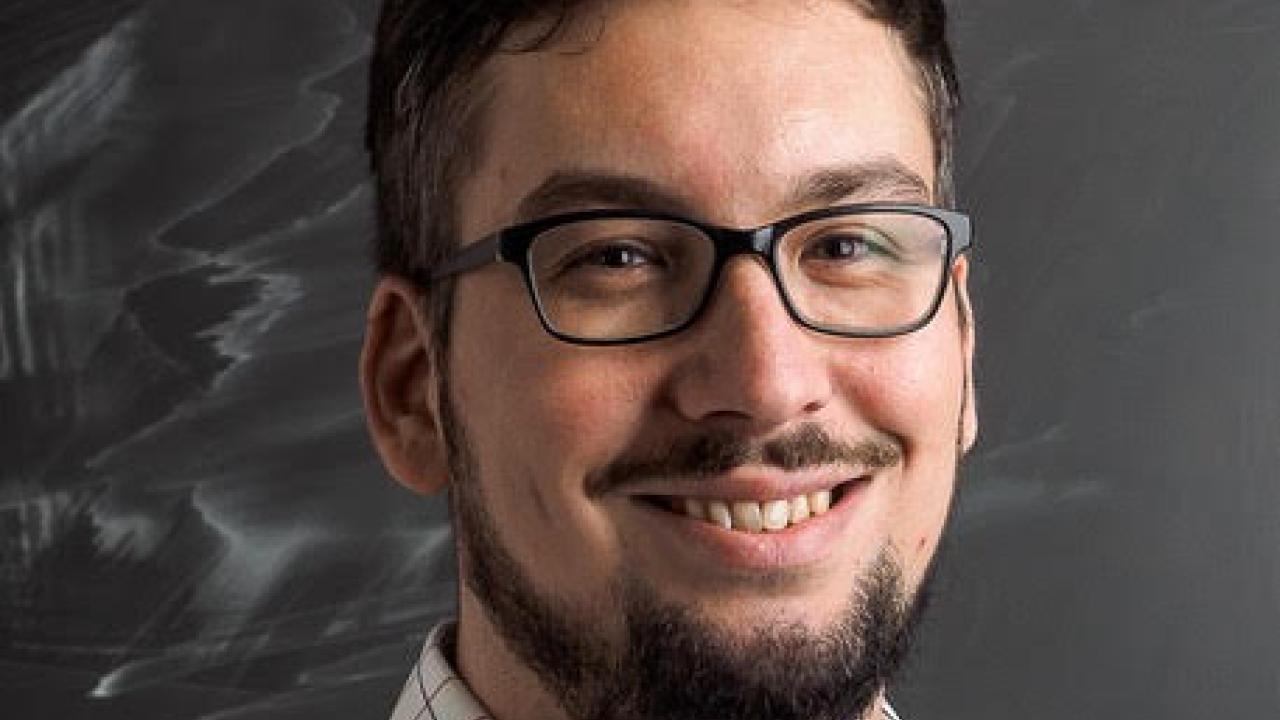
Event Date
Event Date
Location
1127 Kemper Hall and Zoom
Link to a Map
Zoom
Speaker: Uroš Delić, TU Vienna
Title: Tunable optomechanical crystals through nonreciprocal optical forces
Abstract:
Tunable interactions in driven-dissipative quantum systems give rise to cooperative effects such as super/subradiance, self-organization, phase transitions, and other non-equilibrium phenomena. While collective behavior in quantum systems is regularly modeled through reciprocal interactions, in active systems—such as chemical, biological, and socially influenced systems—interactions are fundamentally nonreciprocal as the components modify and adjust their responses over time. Applying nonreciprocal interactions at the quantum level will enable novel quantum sensing techniques and yield insight into nonreciprocal cooperative phenomena and the quantum background of nonreciprocity.
In my talk, I will show that optical forces can couple the motion of two polarizable objects through fundamentally nonreciprocal light-induced dipole-dipole (LIDD) interactions, for which we have developed a complete quantum model. I will present our latest results on using nonreciprocal interactions to induce and study a non-Hermitian phase transition. Finally, I will discuss how we can engineer arbitrary two-mode operations in an optomechanical crystal and give a glimpse into the future of our quantum experiments.
Bio:
Uroš Delić, born in Belgrade, Serbia, in 1987, studied physics at the University of Belgrade and the University of Vienna and computer science at the Faculty of Computing of the Union University in Serbia. During this time, he was an intern in the group of Anton Zeilinger at IQOQI Vienna and with Prof. Vladan Vuletić at MIT. He later joined the group of Prof. Markus Aspelmeyer at the University of Vienna for his Master's and PhD studies, working on cavity cooling of optically levitated nanoparticles. He was a fellow of the Doctoral program "Complex Quantum Systems" (CoQuS) and acted as a student speaker between 2013 and 2015. In 2018, he was the recipient of the Austrian Marshall Plan Scholarship for a research visit to the group of Prof. Vuletić, where he worked on cavity cooling of Cesium atoms by coherent scattering. Back in Vienna, he applied the cooling technique from atomic physics to trapped silica nanoparticles that led to the first demonstration of the motional quantum ground state cooling of a single levitated nanoparticle. He defended his PhD with distinction in 2019, receiving the Award of Excellence from the Austrian Federal Ministry of Education, Science and Research. He continued working as a University Assistant in the Aspelmeyer group and became a Senior scientist in 2022. In 2024, he received the prestigious START Prize from the Austrian Science Fund with an endowment of 1.2 million Euros toward his research. He is an assistant professor at TU Wien since 2025.